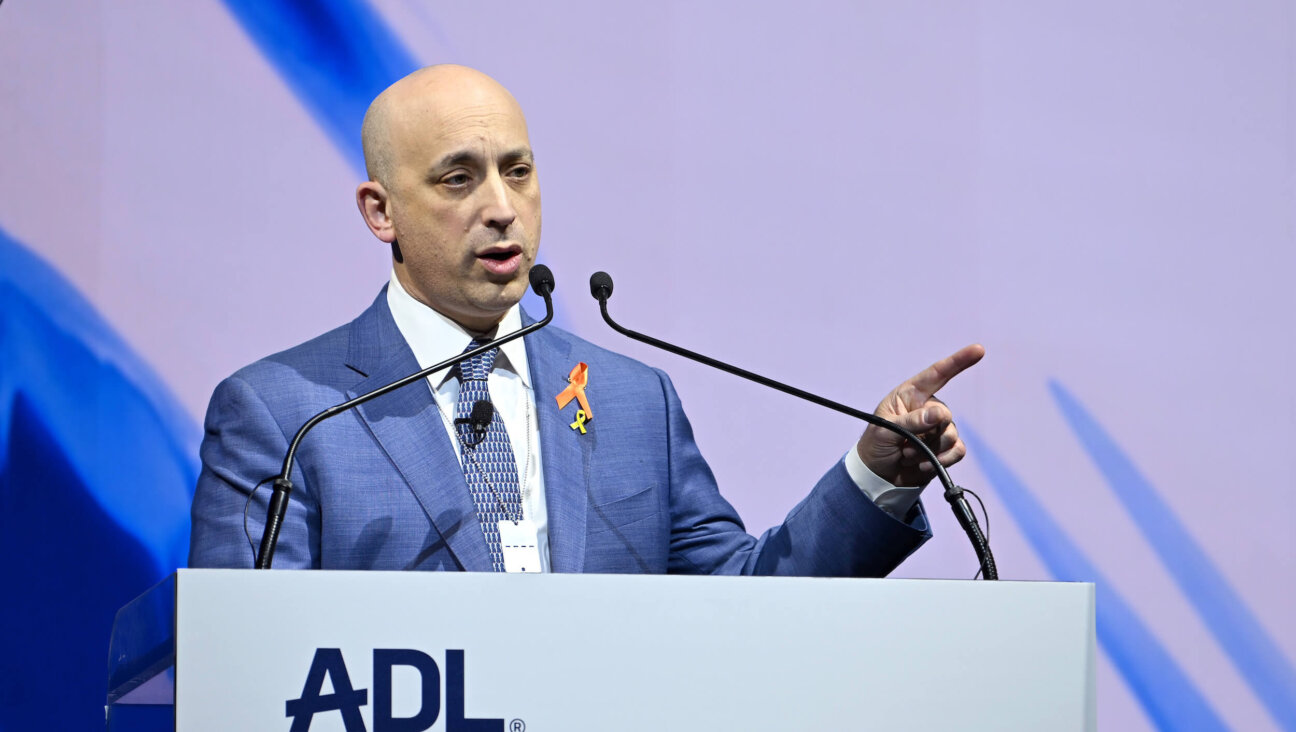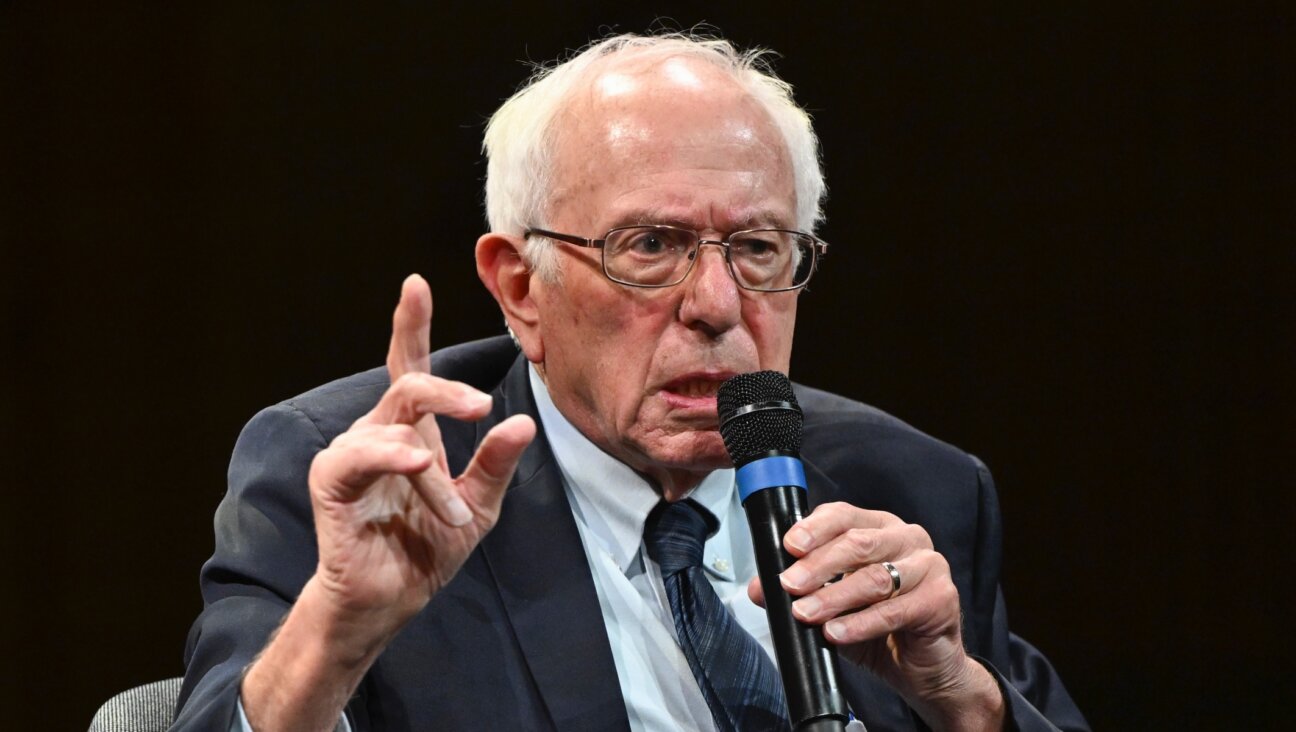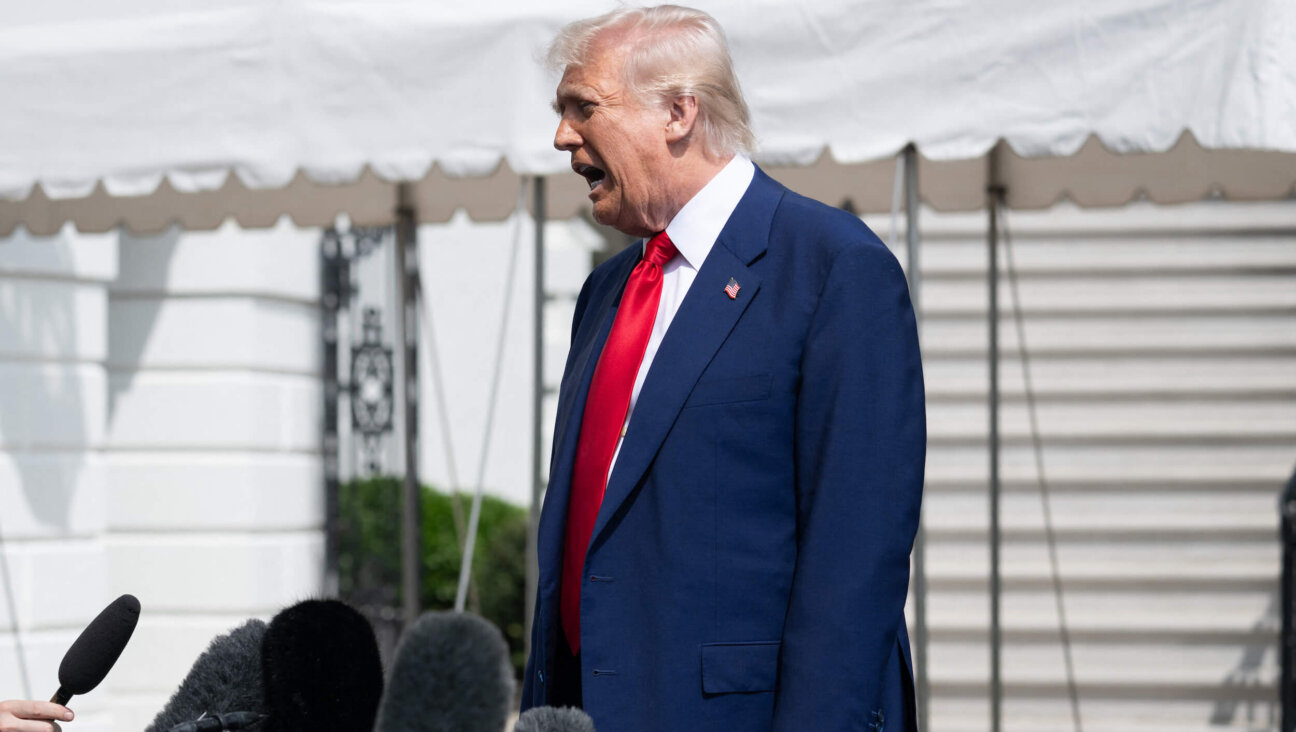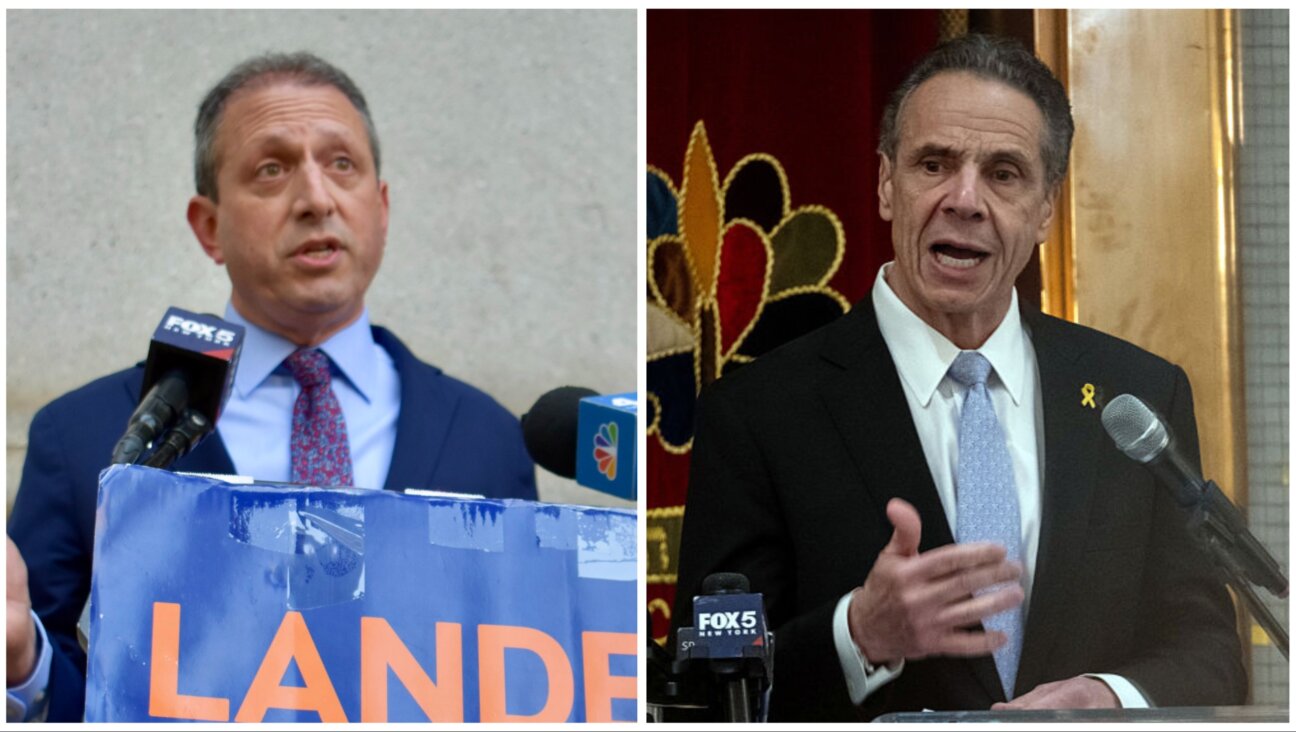Bush’s Internationalist Push Has Dems Grasping for Policy
The capture of Saddam Hussein is pointing up one of the great ironies facing Democrats when they mull their party’s foreign policy: President Bush has stolen it.
Bush’s prosecution of the Iraq war — like his “No Child Left Behind” educational program and his Medicare prescription drug plan — seeks to beat Democrats by joining them on what was formerly their exclusive turf. By promoting democracy abroad and stealing the Democrats’ signature theme — progressive internationalism — Bush has left the Democrats with scant room to formulate an alternative foreign policy, analysts say.
“Bush, in embracing a project for modernizing the Middle East and promoting liberal democracy there, is in the tradition of John Kennedy, Harry Truman and Woodrow Wilson,” said Will Marshall, a Democratic strategist who is president of the Progressive Policy Institute, the think tank associated with the centrist Democratic Leadership Council. “It’s the Democrats who traditionally have understood the need to harness American foreign policy to our values. It’s the Republicans that have usually been the realist party, only protecting our hard, cold interests.”
According to Tom Mahnken, the acting director of the strategic studies program at Johns Hopkins University, “Bush’s national security strategy looks like [President] Clinton’s national security strategy of ‘engagement and enlargement.’ Since the end of the Cold War, there really hasn’t been much difference across party.”
Without room to challenge Bush’s overriding policy, Democrats instead have focused on their narrow tactical differences with the president over his alleged unilateralism in conducting the war, or on what they consider his politicization of intelligence regarding Saddam’s weapons of mass destruction.
“Nobody [among the Democratic candidates] has articulated an alternative foreign policy at all,” said Mahnken, who describes himself as a political independent. “Really what it is, is a critique on tone and approach, not even of substance.”
Leaving aside the question of Bush’s Wilsonian bona fides — some foreign policy analysts see his democracy talk as a cover for much more limited, nationalist aims in Iraq — Bush clearly has defined the terms of debate. That has left the Democrats scrambling trying to distinguish themselves from each other and him.
Senator Joseph Lieberman of Connecticut, the premier liberal internationalist hawk in the party, has carved out a spot to the right of Bush on many issues, stressing that he supported Saddam’s ouster since 1991 and now calling for Saddam’s death. Rep. Dennis Kucinich of Ohio, who opposed the Iraq war and calls for America to bring home the troops and to spend the money here, represents the opposite polarity: the left-liberal isolationism that found its fullest expression in the 1972 presidential campaign of Senator George McGovern. Between the two is former Vermont governor Howard Dean, who opposed the Iraq war but claims he is “no pacifist.” The other candidates squeeze themselves between Dean and Lieberman, with retired general Wesley Clark and Massachusetts Senator John Kerry closer to Dean and Rep. Richard Gephardt of Missouri and Senator John Edwards of North Carolina closer to Lieberman.
“There’s a rift in the Democratic Party, a clear anti-war camp that’s coalesced around Dean, and a progressive internationalist camp that has yet to coalesce around any candidate,” asserted Marshall, who has advised Kerry. “The balance is on the internationalist side, but it’s a hard call. You go back to 1991, only 10 Democratic senators voted for war in a much clearer case.”
Marshall, in sentiments that are echoed by many in the party, said that despite Dean’s putative moves to the center, the Vermonter had gone “well beyond” any pragmatic arguments against the war “to form an emotional bond with the anti-war left.”
That makes political sense entering the Democratic primaries. Anti-war sentiment remains high among Democratic voters, polls find, with only slightly more than a third supporting the war. It is a dicey general election proposition, however: About 60% of Americans supported going to war in Iraq. According to an NBC/Wall Street Journal poll taken this weekend, respondents said by a 62%-to-32% majority that the war in Iraq has made America more secure, a rise from the 52%-to-43% margin the same poll found in September.
Dean understands the challenge. In a major foreign policy address Monday, Dean tacked to the center, focusing his remarks on the foreign policy question that is noticeably absent from most Democratic stump rhetoric: the war on terror. Dean proposed “to build a new anti-terrorist alliance, drawing on our traditional allies and involving other partners” that “will place its strongest emphasis on this most lethal form of terror… the weapons and technologies of mass destruction.”
“He made a basically centrist Democratic speech,” said Morton Abramowitz, a former ambassador to Turkey who supports Clark.
Dean tilled ground on the left, however, by stating that Saddam’s capture had not made America any safer, a statement that was roundly condemned by rivals including Lieberman, Kerry, Gephardt and Edwards.
Dean also seemed to argue for a constrained, realist approach to American foreign policy, saying Bush is “leading America in a radical and dangerous direction” by waging war without some key traditional allies and pointing approvingly to some “realist” Republicans (although he counts the Wilsonian Ronald Reagan) who stand in stark contrast to the Wilsonian Democrats: “Every President in that line, including Republicans — Eisenhower, Nixon, Ford, Reagan, and the first President Bush — demonstrated that effective American leadership includes working with allies and partners, inspiring their support, advancing common interests.”
Lieberman and Kerry, for their part, both marshaled Wilsonian arguments in attacking Dean.
In a conference call with reporters Monday, Lieberman painted Dean as a McGovernite isolationist, saying the question of Dean’s foreign policy was one of “whether the Democratic Party will reconnect itself to the tradition of being strong on defense that comes from [Presidents] Truman, Kennedy and Clinton.” He said Dean threatened to take the Democratic Party back to a time when it was “weak on defense.”
In a speech on Tuesday, Kerry argued for a Wilsonian activism unconstrained by the realist concerns Dean broached the day before. “Woodrow Wilson led America in a fight for self-determination and against old empires. Franklin Roosevelt defended freedom from fascism,” he said. “Harry Truman contained the expansion of communism and introduced the Marshall Plan. John F. Kennedy pledged a ‘long twilight struggle’ to end the Cold War. Jimmy Carter renewed America’s commitment to human rights around the world. And from Haiti to Bosnia, Bill Clinton placed America’s might on the side of America’s values while he expanded our circle of allies at the same time. And none of them would ever have given others the power to prevent America from defending its interests or its ideals. To follow the path that Howard Dean seems to prefer is to embrace a ‘Simon Says’ foreign policy where America only moves if others move first.”
All this is not to say Bush necessarily wins on the foreign policy he’s followed. While Saddam’s capture, for the moment, puts Iraq in the plus column for Bush, the Sunni insurgency there has not ended and the possibility of a terrorist attack here represents an incalculable factor. But if things go reasonably well for the United States abroad, “it reduces Iraq as a winning political issue” for the Democrats, Abramowitz said.
Good news as tough shakes?
“The burden that the Democrats have is that it won’t be sufficient simply to present a critique of the administration’s policy,” said James Lindsay, the director of studies at the Council on Foreign Relations, in a conference call with reporters last week. “Democrats are going to have to be able to persuade the public that they have a solution and can be trusted to deliver on it. On that score, Democrats face an uphill battle.”
The Forward is free to read, but it isn’t free to produce

I hope you appreciated this article. Before you go, I’d like to ask you to please support the Forward.
At a time when other newsrooms are closing or cutting back, the Forward has removed its paywall and invested additional resources to report on the ground from Israel and around the U.S. on the impact of the war, rising antisemitism and polarized discourse.
Readers like you make it all possible. We’ve started our Passover Fundraising Drive, and we need 1,800 readers like you to step up to support the Forward by April 21. Members of the Forward board are even matching the first 1,000 gifts, up to $70,000.
This is a great time to support independent Jewish journalism, because every dollar goes twice as far.
— Rachel Fishman Feddersen, Publisher and CEO
2X match on all Passover gifts!
Most Popular
- 1

News A Jewish Republican and Muslim Democrat are suddenly in a tight race for a special seat in Congress
- 2

Fast Forward The NCAA men’s Final Four has 3 Jewish coaches
- 3

Fast Forward Cory Booker proclaims, ‘Hineni’ — I am here — 19 hours into anti-Trump Senate speech
- 4

Film & TV What Gal Gadot has said about the Israeli-Palestinian conflict
In Case You Missed It
-

Opinion The ADL reversed its support for Trump’s student deportations. You should too
-

Fast Forward Senate rejects Bernie Sanders’ proposal to block some weapons sales to Israel
-

Fast Forward Sotheby’s to auction earliest known kiddush cup
-

Opinion Trump’s new tariffs on Israel are a BDS dream come true
-
Shop the Forward Store
100% of profits support our journalism
Republish This Story
Please read before republishing
We’re happy to make this story available to republish for free, unless it originated with JTA, Haaretz or another publication (as indicated on the article) and as long as you follow our guidelines.
You must comply with the following:
- Credit the Forward
- Retain our pixel
- Preserve our canonical link in Google search
- Add a noindex tag in Google search
See our full guidelines for more information, and this guide for detail about canonical URLs.
To republish, copy the HTML by clicking on the yellow button to the right; it includes our tracking pixel, all paragraph styles and hyperlinks, the author byline and credit to the Forward. It does not include images; to avoid copyright violations, you must add them manually, following our guidelines. Please email us at [email protected], subject line “republish,” with any questions or to let us know what stories you’re picking up.















